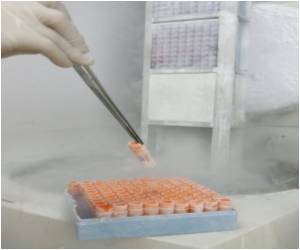Recent study conducted by researchers could pave way for better understanding of how life first emerged on Earth billions of years ago.

The first living organisms would have been microscopic, cell-like organizations capable of replicating and adapting to environmental conditions - a humble beginning to life on Earth.
"The current paradigm on the emergence of life is that RNA came first and in a high-temperature environment," Blaber said. "The data we are generating are much more in favor of a protein-first view in a halophile environment."
The widely accepted view among scientists is that RNA, found in all living cells, would have likely represented the first molecules of life, hypothesizing an "RNA-first" view of the origin of living systems from non-living molecules. Blaber's results indicate that the set of amino acids produced by simple chemical processes contains the requisite information to produce complex folded proteins, which supports an opposing "protein-first" view.
Another prevailing view holds that a high-temperature (thermophile) environment, such as deep-ocean thermal vents, may have been the breeding ground for the origin of life.
"The halophile, or salt-loving, environment has typically been considered one that life adapted into, not started in," Blaber said. "Our study of the prebiotic amino acids and protein design and folding suggests the opposite."
Advertisement
"Rather than a curious niche that life evolved into, the halophile environment now may take center stage as the likely location for key aspects of abiogenesis," he said. "Likewise, the role of the formation of proteins takes on additional importance in the earliest steps in the beginnings of life on Earth."
Advertisement
Source-ANI








